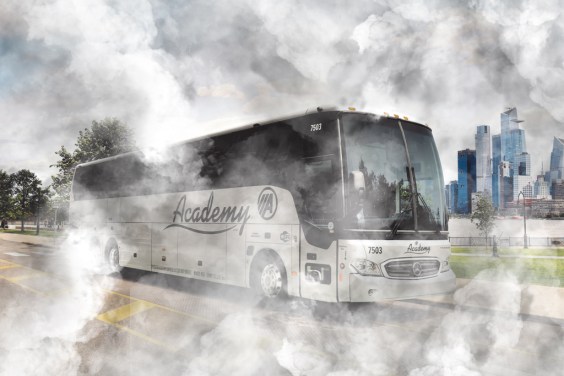
St. Louis is home to one of the more notorious failures of the "urban renewal" era: the Pruitt-Igoe housing project. When these towers were demolished a generation ago, it seemed like the end of an era in city planning. The clearance of city blocks to make way for mega-development projects is now considered a colossal failure.
But that doesn't mean American cities have actually stopped doing it. The urban renewal mentality is still alive and well in St. Louis, writes Steve Patterson at Urban Review STL.
A current example: The National Geospatial-Intelligence Agency is looking for a new location for its St. Louis facilities, and Patterson says it's nearly a foregone conclusion that a large portion of the city will be razed to make room for the agency:
Jane Jacobs’ 1961 book The Death and Life of Great American Cities rebuked the ongoing land clearance policies advocated by supporters of urban renewal. By the late 1960s one of St. Louis’ most prominent urban renewal projects -- Pruitt-Igoe -- was a disaster. Before the 20th anniversary the first of 33 towers were imploded in 1972 -- urban renewal was unofficially over.
But forty plus years later the St. Louis leadership continues as if nothing changed. The old idea of marking off an area on a map to clear everything (homes, schools, businesses, churches, roads, sidewalks) within the red lined box remains as it did in the 1950s. The message from city hall is clear: don’t invest in North St. Louis because they can and will walk in and take it away.
Here is a likely scenario for the relocation of the National Geospatial-Intelligence Agency, Patterson says:
A) National Geospatial-Intelligence Agency selects the city option:
- Businesses, residents, churches, etc are displaced.
- A 100-acre swath is purchased and cleared.
- The federal government builds a fortress-like campus, few workers would leave at lunch.
- No benefit to the surrounding neighborhoods, access to public transit cut off by monolithic campus.
- Adjacent areas now threatened as the next target for clearance, further eroding those areas.
- Fire Station Number 5 would remain, but because of the new campus, firefighters would be unable to quickly reach the area to the West of Jefferson/Parnell.
We shouldn’t be willing to raze 100 acres to retain earnings tax revenues. If there was hope the campus would help the surrounding area it might be a fair tradeoff, but it’ll further deteriorate and isolate. Still, this urban renewal mindset is so engrained I’m not sure we’ll ever break free of it.
Elsewhere on the Network today: Copenhagenize lists 10 common ways cities humiliate pedestrians. Greater Greater Washington reports that Maryland's bike lane designs just took a huge leap forward. And Strong Towns argues that Walmarts sap local wealth.





